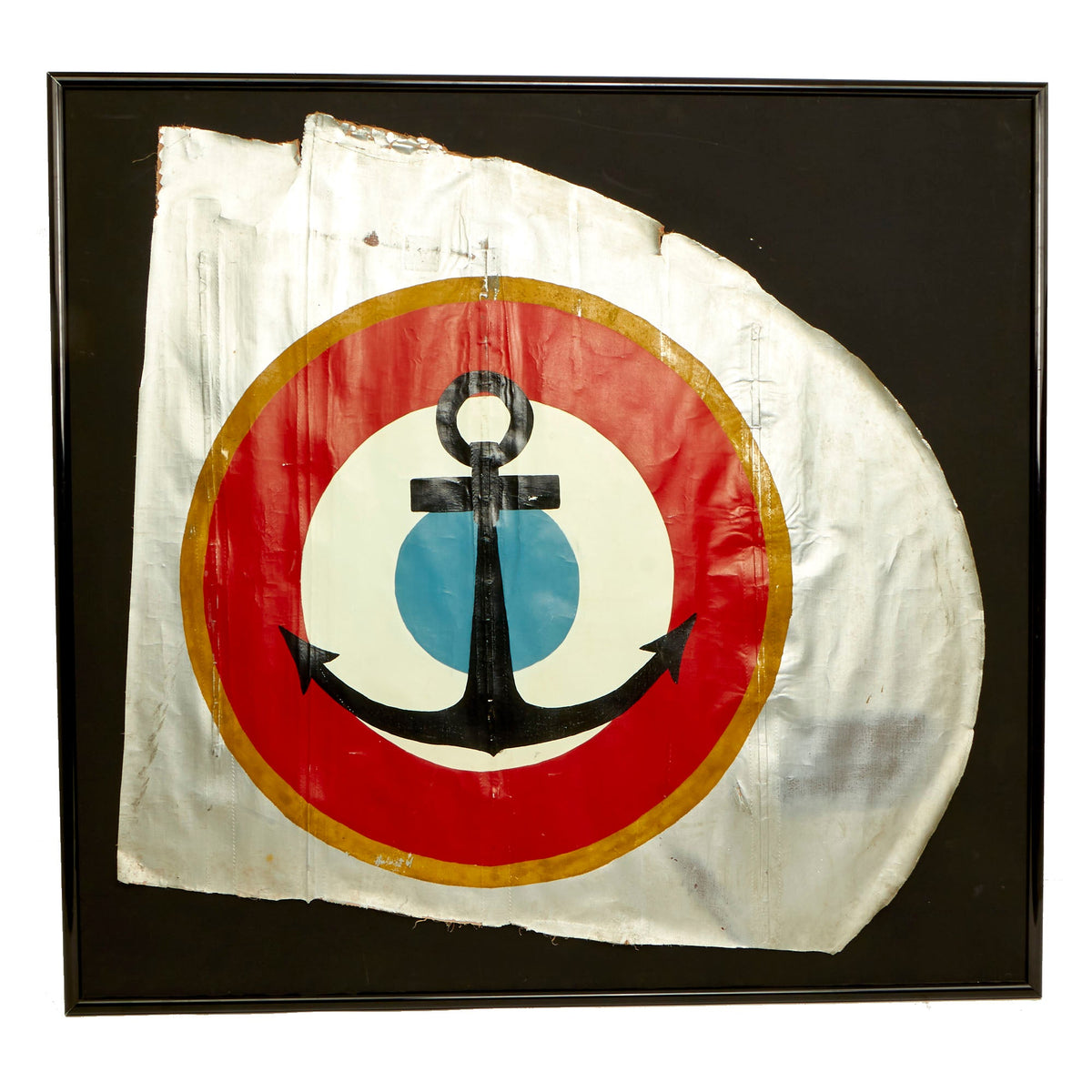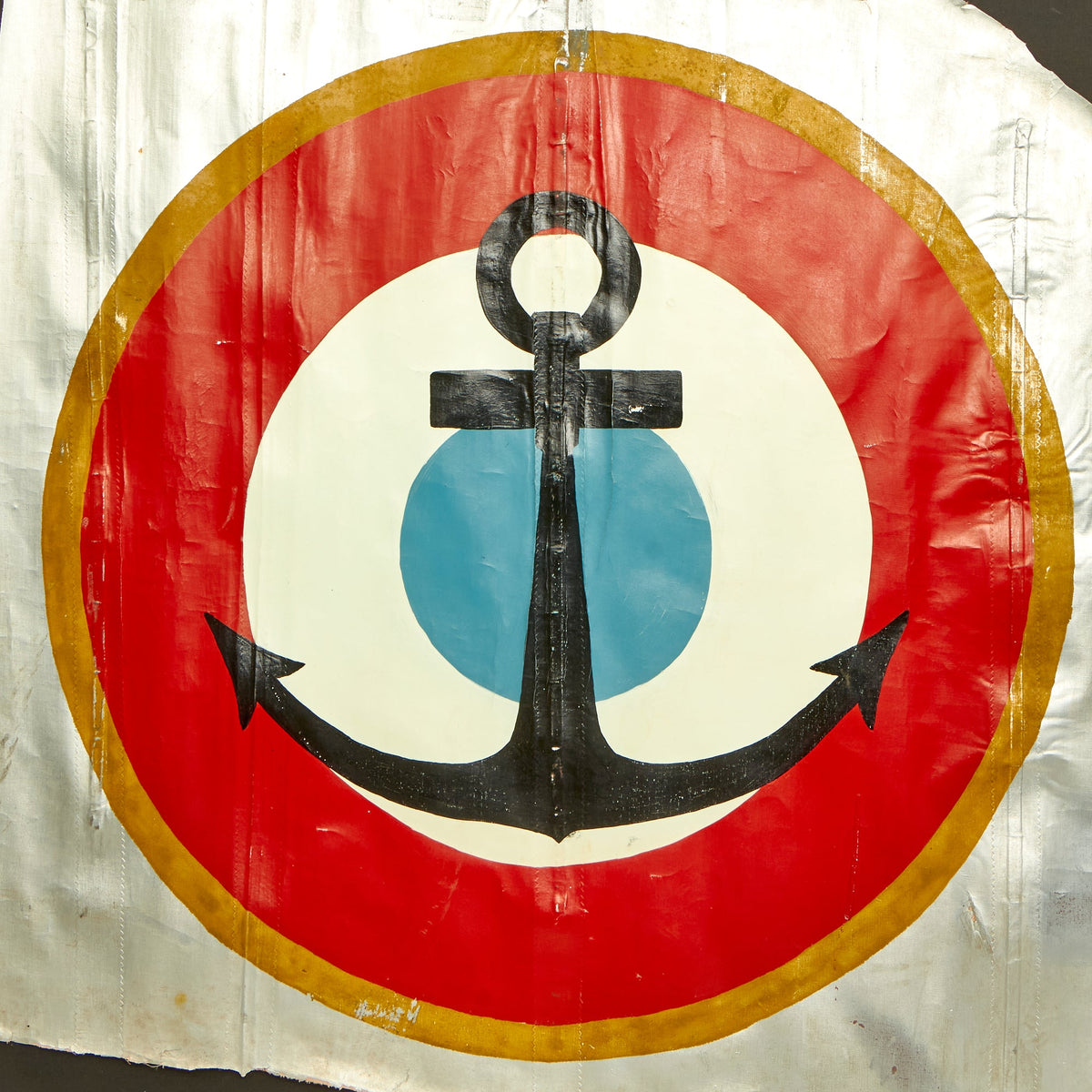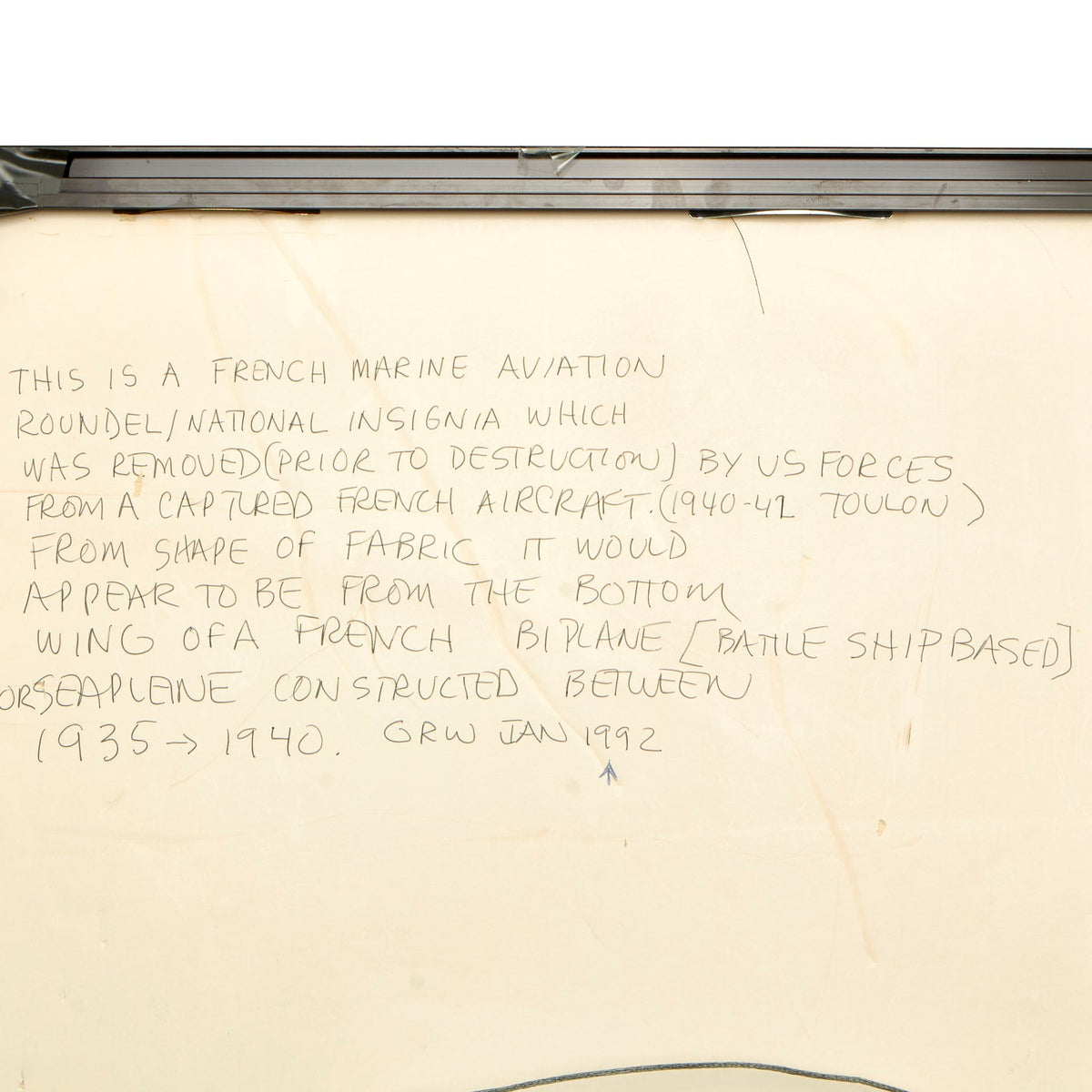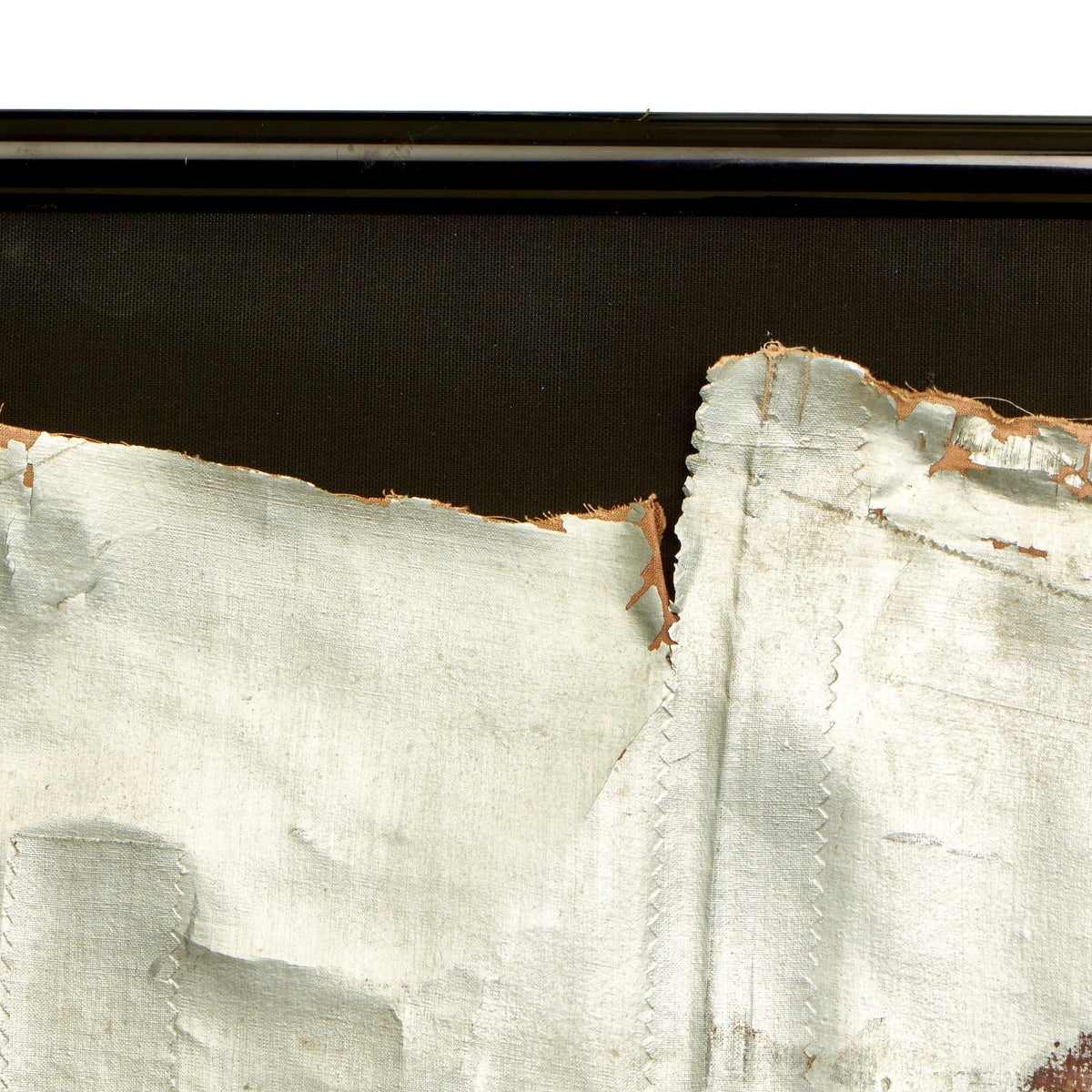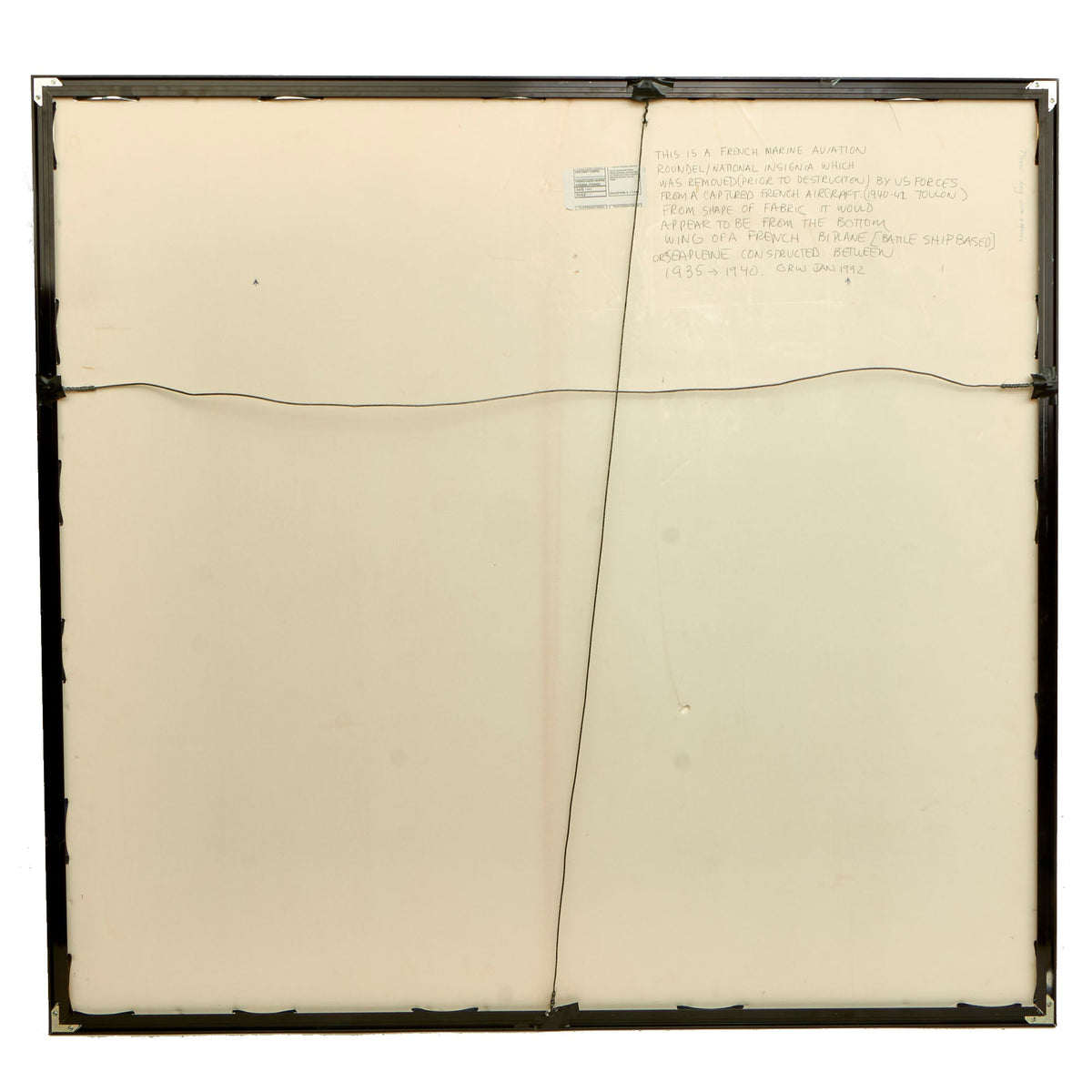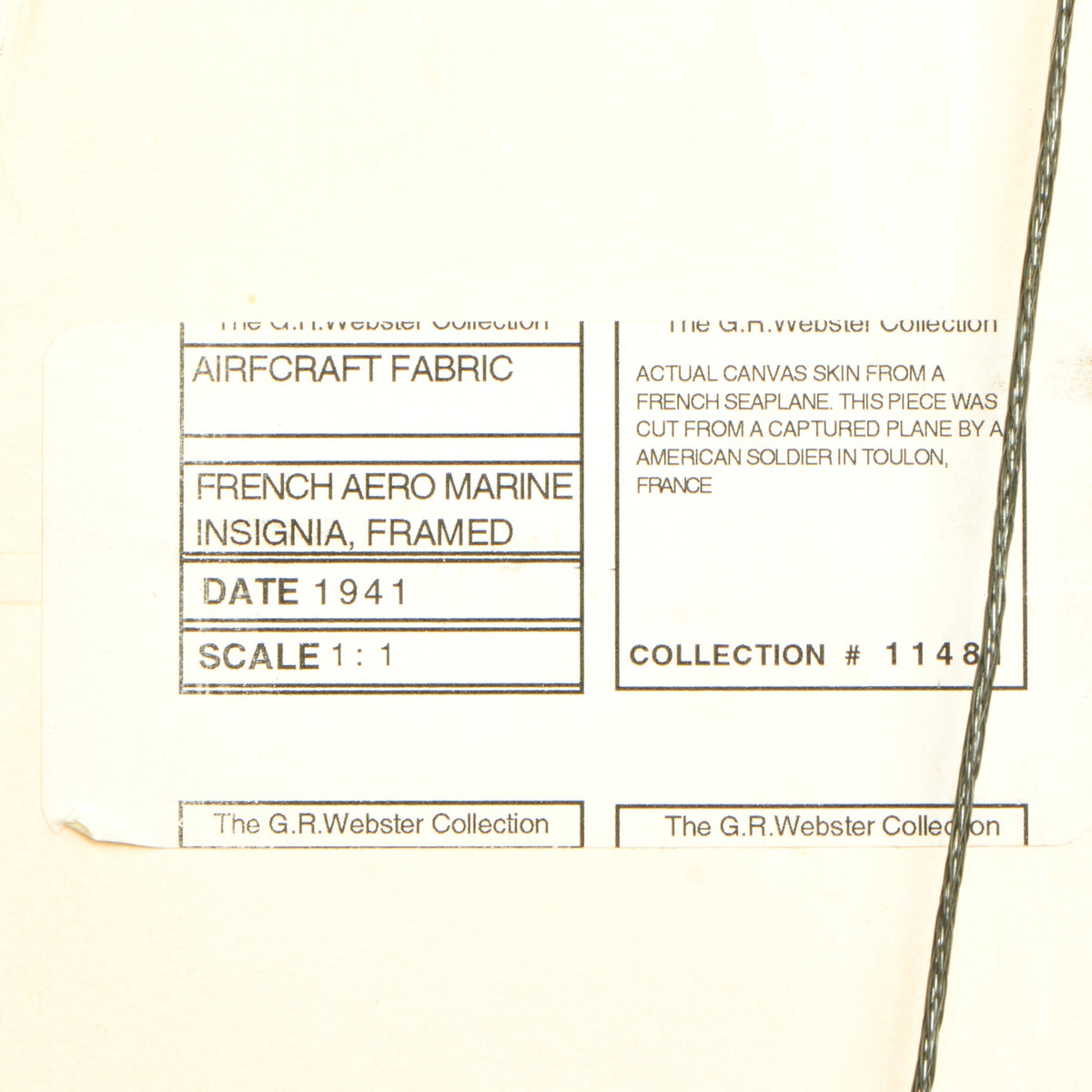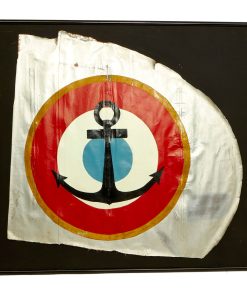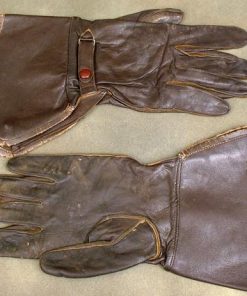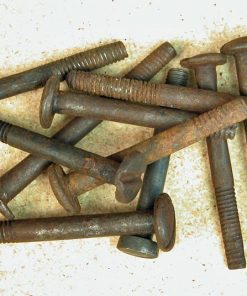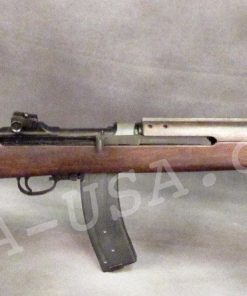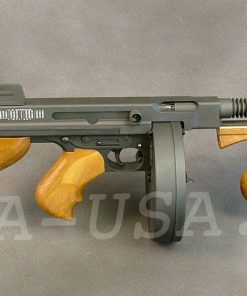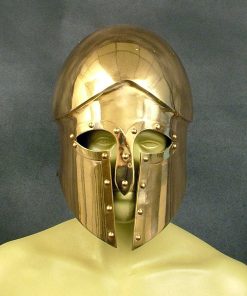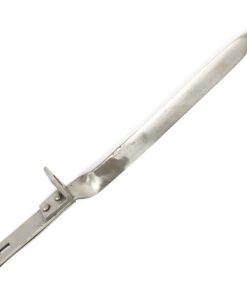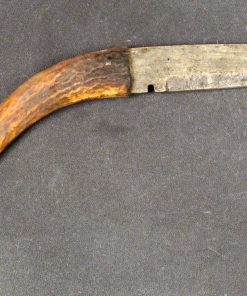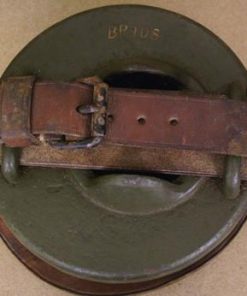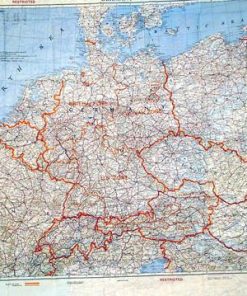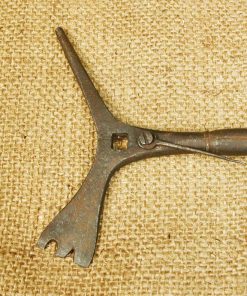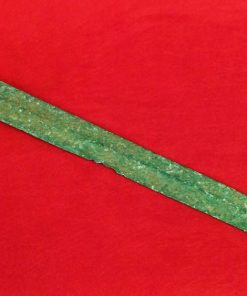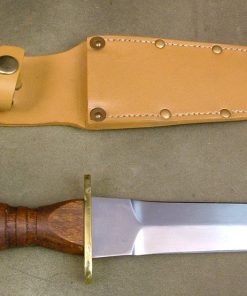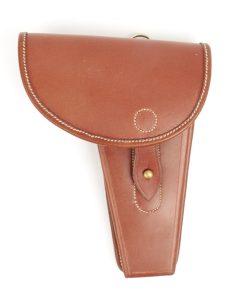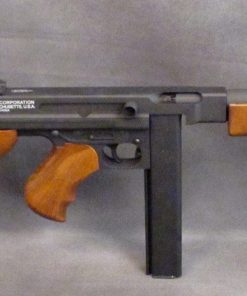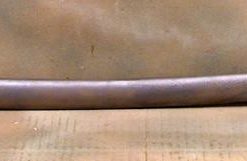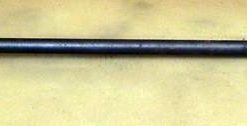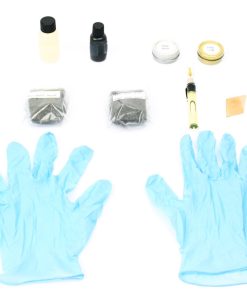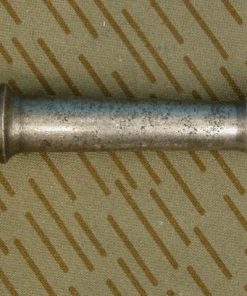Original French WWII Framed Aéronautique Navale Naval Air Arm Painted Canvas Aircraft Skin Piece – 49” x 47” Original Items
$ 2.195,00 $ 548,75
Original Item: Only One Available. Now this is a lovely French memento from WWII. Its Aircraft and origin story is unknown to us, but it is still a lovely item nonetheless! It appears that this could have been torn from a downed aircraft or taken as a souvenir when the aircraft was decommissioned.
The first use of national insignia on military aircraft was before the First World War by the French Aéronautique Militaire, which mandated the application of roundels in 1912. The chosen design was the French national cockade, which consisted of a blue-white-red emblem, going outwards from center to rim, mirroring the colors of the French flag. In addition, aircraft rudders were painted the same colors in vertical stripes, with the blue vertical stripe of the tricolors forwardmost. Similar national cockades were designed and adopted for use as aircraft roundels by the air forces of other countries, including the U.S. Army Air Service.
The roundel features a lovely gold, red, white and blue circle with an anchor in the center for the Naval Air Arm. French Naval Aviation is the naval air arm of the French Navy. The long-form official designation is Force maritime de l’aéronautique navale. Born as a fusion of aircraft carrier squadrons and the naval patrol air force, the Aéronavale was created in 1912. The force is under the command of a flag officer officially titled Admiral of Naval Aviation (ALAVIA) with his headquarters at Toulon naval base. It has a strength of around 6,800 military and civilian personnel. It operates from four airbases in Metropolitan France and several detachments in foreign countries or French overseas territories. Carrier-borne pilots of the French Navy do their initial training at Salon-de-Provence Air Base after which they undergo their carrier qualification with the US Navy.
The condition is quite nice with nearly all of the original paint retained. The color of the skin itself is silver and could very well have come from a French used Consolidated PBY Catalina due to the same exact roundel with the gold trim. The frame measures approximately 49” x 47” and does not have a glass or plexiglass cover on the front.
A lovely example ready for further research and display.
Fast Shipping with Professional Packaging
Thanks to our longstanding association with UPS FedEx DHL, and other major international carriers, we are able to provide a range of shipping options. Our warehouse staff is expertly trained and will wrap your products according to our exact and precise specifications. Prior to shipping, your goods will be thoroughly examined and securely secured. We ship to thousands clients each day across multiple countries. This shows how we're dedicated to be the largest retailer on the internet. Warehouses and distribution centres can be located throughout Europe as well as the USA.
Note: Orders with more than one item will be assigned a processing date depending on the item.
Before shipping before shipping, we'll conduct a thorough inspection of the items you have ordered. Today, the majority of orders will be delivered within 48 hours. The delivery time will be between 3-7 days.
Returns
The stock is dynamic and we cannot completely manage it because multiple stakeholders are involved, including our factory and warehouse. So the actual stock may alter at any time. It's possible that you may not receive your order once the order has been made.
Our policy is valid for a period of 30 days. If you don't receive the product within 30 days, we are not able to issue a refund or an exchange.
You can only return an item if it is unused and in the same state as the day you received it. You must have the item in its original packaging.
Related products
Uncategorized
Uncategorized
Australian WWII Owen MK1 Machine Carbine SMG Custom Fabricated Replica with Sling Original Items
Uncategorized
Uncategorized
Uncategorized
Uncategorized
Uncategorized
Uncategorized
Uncategorized
Uncategorized
Uncategorized
Uncategorized
Armoured Fighting Vehicles of the World: AFVs of World War One (Hardcover Book) New Made Items
Uncategorized
Uncategorized
Uncategorized
Uncategorized
Uncategorized
Uncategorized
Angolan Rebel 1970s era 60mm Inert Display Mortar from Angolan Civil War Original Items
